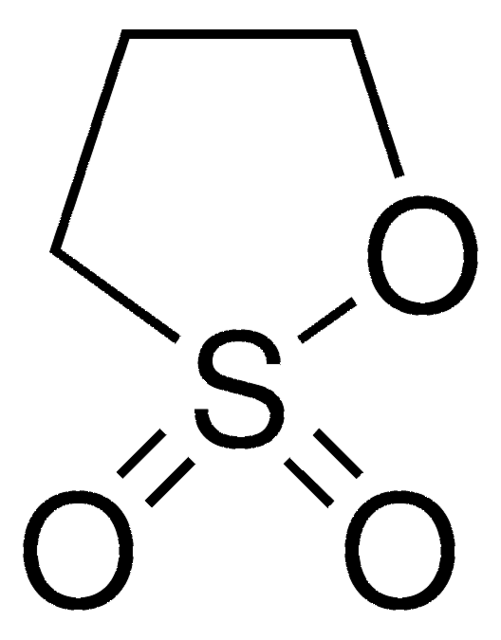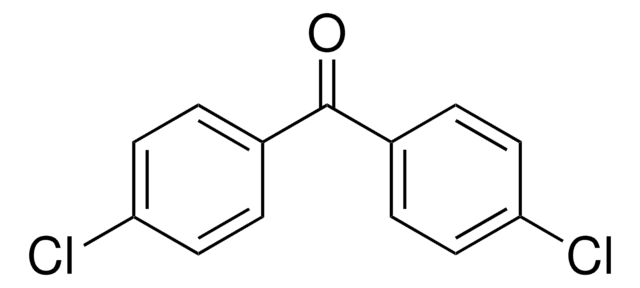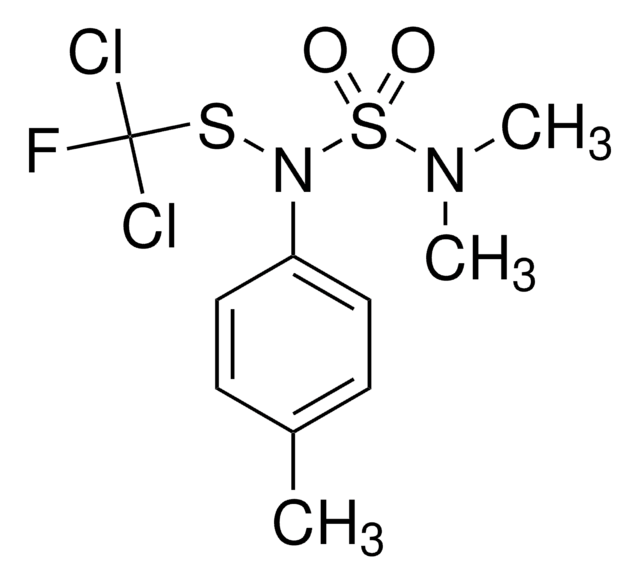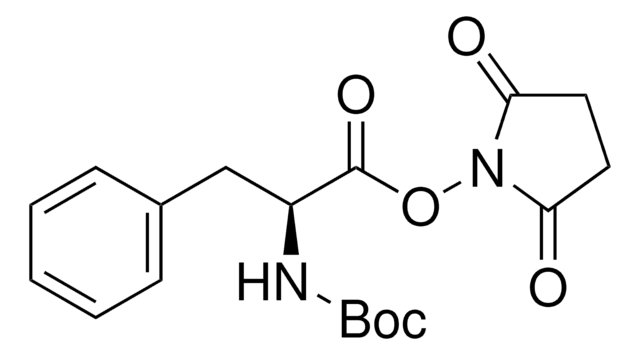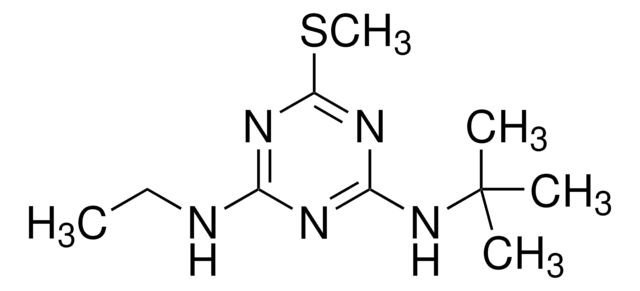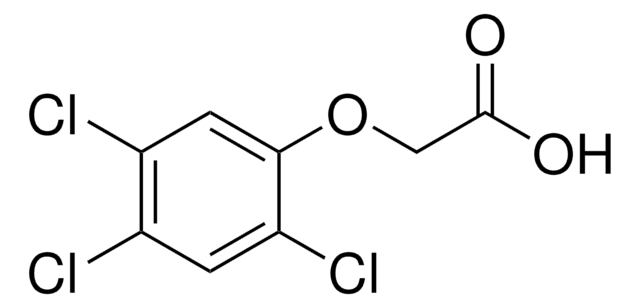36677
Dicofol
PESTANAL®
Synonym(s):
2,2,2-Trichloro-1,1-bis(4-chlorophenyl)ethanol
About This Item
Recommended Products
grade
analytical standard
Quality Level
product line
PESTANAL®
application(s)
agriculture
environmental
format
neat
storage temp.
2-8°C
SMILES string
OC(c1ccc(Cl)cc1)(c2ccc(Cl)cc2)C(Cl)(Cl)Cl
InChI
1S/C14H9Cl5O/c15-11-5-1-9(2-6-11)13(20,14(17,18)19)10-3-7-12(16)8-4-10/h1-8,20H
InChI key
UOAMTSKGCBMZTC-UHFFFAOYSA-N
Looking for similar products? Visit Product Comparison Guide
Related Categories
General description
Legal Information
Not finding the right product?
Try our Product Selector Tool.
Signal Word
Warning
Hazard Statements
Precautionary Statements
Hazard Classifications
Acute Tox. 4 Dermal - Acute Tox. 4 Oral - Aquatic Acute 1 - Aquatic Chronic 1 - Skin Irrit. 2 - Skin Sens. 1
Storage Class Code
11 - Combustible Solids
WGK
WGK 3
Flash Point(F)
Not applicable
Flash Point(C)
Not applicable
Personal Protective Equipment
Certificates of Analysis (COA)
Search for Certificates of Analysis (COA) by entering the products Lot/Batch Number. Lot and Batch Numbers can be found on a product’s label following the words ‘Lot’ or ‘Batch’.
Already Own This Product?
Find documentation for the products that you have recently purchased in the Document Library.
Customers Also Viewed
Our team of scientists has experience in all areas of research including Life Science, Material Science, Chemical Synthesis, Chromatography, Analytical and many others.
Contact Technical Service


